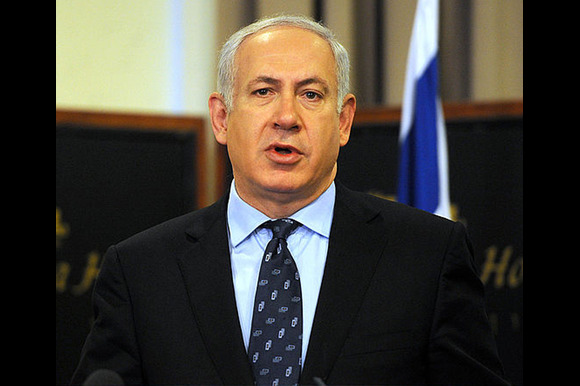Tens of thousands of demonstrators flooded streets across Australia’s capital cities on 24 August, rallying in solidarity with Palestinians, denouncing the Israeli government’s actions in Gaza, and urging their own leaders to respond more forcefully to the humanitarian catastrophe unfolding there.
The protests came just weeks after a massive 3 August march across the Sydney Harbour Bridge—an event described as one of the largest political demonstrations in the country’s history. Together, the two mobilisations bookended a turbulent month that saw Australia–Israel relations sink to unprecedented lows, marked by cancelled visas, bitter rhetoric exchanged between leaders, and accusations of Israeli interference in domestic politics following Canberra’s expulsion of Iran’s ambassador.
Despite the intensifying diplomatic fallout, demonstrators on 24 August echoed many of the same demands as earlier in the month: sanctions against Israel and a halt to what activists describe as a “two-way arms trade,” in which Australian-made parts are incorporated into weaponry used by the Israeli Defense Forces (IDF).
While experts acknowledge a noticeable change in tone from Canberra, the extent of this shift remains contested. “It really is quite a change,” one analyst told the BBC, though others caution that the government’s moves may be more symbolic than substantive.
Genocide Allegations and Mounting Humanitarian Concerns
The latest protests unfolded against the backdrop of a damning assessment from the International Association of Genocide Scholars. In a detailed report, the organisation declared that Israel’s military campaign in Gaza meets the UN’s definition of genocide, citing targeted destruction of essential infrastructure in healthcare, education, and humanitarian aid, as well as the deaths and injuries of some 50,000 children.
Israel dismissed the findings, labelling them “Hamas lies” and rejecting accusations of genocide.
At the same time, the IDF pressed forward with a sweeping assault on Gaza City despite growing international opposition. Meanwhile, the UN-backed global hunger monitor confirmed that famine had gripped the enclave, with over half a million people enduring “catastrophic” conditions of “starvation, destitution, and death.” The crisis, the monitor stressed, was “entirely man-made,” with humanitarian groups accusing Israel of systematically blocking food aid.
Amid rising public outrage, the Albanese government signalled a shift. Days after the Sydney Harbour Bridge demonstration, Prime Minister Anthony Albanese announced that Australia would join the UK, France, and Canada in conditionally recognising a Palestinian state.
Speaking later to the ABC, Albanese revealed that a conversation with Israeli Prime Minister Benjamin Netanyahu—who he described as being “in denial” about Gaza’s crisis—helped shape the decision.
Divided Responses to Albanese’s Recognition of Palestine
The announcement, however, drew mixed reactions domestically. Palestinian activists criticised it as inadequate, while pro-Israel voices condemned it as a betrayal.
Amal Naser, a third-generation Palestinian refugee and organiser with the Palestine Action Group, described the move as a “distraction.”
“We need much more from the Australian government for them to satisfy their obligations under international law,” Naser told the BBC. “I don’t object to recognition, but I don’t support it either. They’ve done nothing material to meet their responsibilities.”
Alex Ryvchin, co-chief executive of the Executive Council of Australian Jewry, called the decision “a body blow” to the Jewish community. “This is gesture politics that undermines the cause of peace,” he said, adding that frustration is widespread among Jewish Australians. “It’s clearly a low point in nearly 80 years of diplomatic relations between the two countries.”
Netanyahu Escalates War of Words
Israel’s strongest rebuke came directly from Netanyahu. On 18 August, he sent a letter accusing Albanese of fuelling antisemitism and denouncing Australia’s planned recognition of Palestine as “appeasement” of Hamas.
His remarks mirrored criticisms he had already levelled at the UK, France, and Canada—nations he accused of siding with “murderers and kidnappers.” But in Australia’s case, the response escalated further.
The same day, Canberra’s Home Affairs Minister Tony Burke confirmed that far-right Israeli politician Simcha Rothman, a member of Netanyahu’s governing coalition, had been denied entry into Australia for a planned “solidarity tour.” Israel retaliated by revoking the visas of Australian representatives accredited to the Palestinian Authority.
Netanyahu then intensified his attacks, branding Albanese a “weak politician who betrayed Israel and abandoned Australia’s Jews.” Two days later, in an interview with Sky News Australia, he predicted Albanese’s record would be “forever tarnished” by the decision.
Albanese downplayed the criticism, telling reporters he does not “take these things personally.” “I treat leaders of other countries with respect. I engage diplomatically,” he said.
Burke, however, struck a sharper tone, telling the ABC that Netanyahu was “lashing out.” “Strength is not measured by how many people you can blow up or how many people you can leave hungry,” he said.
Analysts: Relations at an All-Time Low
The public spat has plunged bilateral relations to depths unseen in decades.
Ian Parmeter, a research scholar at the Australian National University’s Centre for Arab and Islamic Studies and a veteran of government service, said: “Australia has generally had a very pro-Israel foreign policy. I’ve never seen ties at a worse point. This is language I haven’t heard from an Australian prime minister in my career.”
Following Hamas’s 7 October 2023 attack on Israel, which killed 1,200 people and saw more than 250 hostages taken, Australia reaffirmed its traditional support for Israel, insisting on its right to self-defence. But in the months since, with Gaza’s death toll surpassing 62,900 according to the Hamas-run health ministry, public and political pressure has mounted.
Parmeter suggested that Netanyahu’s refusal to acknowledge the humanitarian crisis, coupled with his ambitions to consolidate control over Gaza, drove Australia’s policy shift. The mass Sydney Harbour Bridge demonstration also underscored strong domestic pressure for the government to act—even if only symbolically.
Symbolism Versus Substance
Yet for many within the pro-Palestinian movement, Canberra’s actions remain superficial.
“Despite one of the largest marches in Australian history demanding sanctions and an end to the arms trade, the government has only made symbolic gestures,” said Naser. “They haven’t gone nearly far enough.”
Indeed, some of Canberra’s other recent moves have won praise in Israel. Last week, the Albanese government expelled Iran’s ambassador after intelligence services linked Tehran to antisemitic attacks in Sydney and Melbourne—a café arson in October and a synagogue fire in December. It was the first expulsion of an ambassador by Australia since World War Two.
Israel claimed credit, with government spokesperson David Mencer suggesting that the decision followed Netanyahu’s “forthright intervention.” The Albanese government dismissed that assertion as “complete nonsense.”
Walking a Diplomatic Tightrope
The episode highlights the delicate balancing act Australia is attempting: managing domestic divisions, responding to mounting international pressure, and navigating longstanding but increasingly strained ties with Israel.
Discontent continues to simmer across both pro-Israel and pro-Palestinian communities at home, while experts argue that the current rupture may prove temporary.
“This is not a major strategic relationship for Australia,” Parmeter observed. “In the long run, these tensions will heal, because the human and cultural connections between the two countries are strong.”






